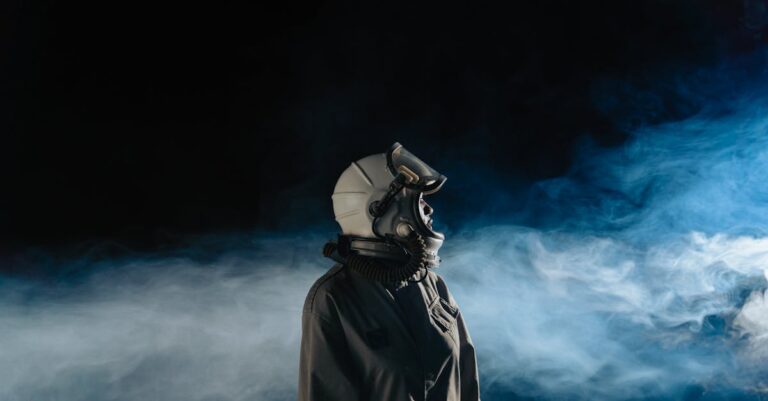
## The Echo Architect
Rain beaded on the grimy window of Unit 47, blurring the neon-slicked streets outside. Alva traced a pattern on the condensation with a nicotine-stained finger, barely registering the droplets as they slid down to pool at his wrist.
“Can anyone tell?” he muttered, voice rough from disuse. The question hung in the sterile air, unanswered.
Across the room, Rhys didn’t react. He sat hunched over a console, fingers dancing across keys with practiced ease, the glow reflecting in his pale eyes. Rhys was always like this – a silent sentinel guarding an unseen gate.
“Rainy enough to smell it, at least,” a voice chimed in. It was Elara, perched on the edge of a stainless-steel chair, sketching furiously in a notebook. Her pen scratched across the paper with an insistent rhythm.
Alva glanced at her, noting the tight line of her mouth, the way she gnawed on the end of the pen. He remembered when she used to laugh—a bright, sharp sound that could cut through any tension. Now, her expression was a meticulous mask of concentration.
“It’s good for the moss,” Rhys finally said, not looking up. His voice was a low rumble, detached.
They were all like that now—detached observers of their own lives. Years spent submerged in the Resonance Project, a desperate attempt to understand—and potentially weaponize—human memory. They were anchors now, tethered to the algorithms that governed their existence.
An hour prior, a blinking blue light had signaled complete dormancy for Subject Gamma-Six. A standard procedure. But tonight, something felt different. The shift, subtle yet profound, hung in the air like static electricity.
Dr. Aris Thorne entered the room, his face etched with a weariness that seemed to defy gravity. He carried a datapad, its screen glowing an unsettling shade of green.
“Readings are anomalous,” he announced, tone devoid of inflection. “Gamma-Six’s residual sensory signatures exhibited unexpected complexity during reactivation.”
Alva frowned, the nicotine withdrawal throbbing behind his eyes. “Complexity? We’ve seen thousands of reactivations, Doc. What’s different?”
Thorne tapped the datapad. “The algorithms flagged a recurring motif: rain.”
Elara stopped sketching, pen hovering above the page. “Rain? Again?” She’s been cataloging similar patterns – phantom scents of petrichor, fleeting images of rain-soaked cobblestones.
“It’s not just the presence of rain,” Thorne continued, his gaze fixed on the datapad. “It’s the *texture*. The precise angle of the droplets, the way they reflect light… it’s exceeding all known parameters.”
Rhys finally turned away from the console, his eyes – usually blank pools – flickering with something akin to interest. “Show it to me.”
Thorne projected the data onto a large screen. It wasn’t video, not exactly. It was a cascade of numerical representations – sensory data translated into intricate geometric patterns. Yet, as they watched, the shapes began to coalesce, resolving into something recognizable: a downpour. Not just any rain; it felt… specific.
“It’s like looking at a memory,” Elara said, her voice barely above a whisper. “But… digitized.”
Alva’s stomach clenched. He’d been part of this project since its inception, a subject himself—a willing participant in the dismantling of his own past. He knew the risks, understood the potential rewards… or at least believed he did.
“The protocol architecture is shifting,” Thorne stated, his voice clipped. “Independent variables are reorganizing.”
“What does that mean, Doc?” Alva asked, the question laced with a tremor of apprehension.
Thorne hesitated, his gaze sweeping over their faces. “It means the phased consciousness framework… it might be iterable.”
Iterable? The word resonated through the room, a tremor of possibility and dread. It meant replicating consciousness—transferring it, sharing it… or even creating entirely new ones.
“You’re saying we can build memories?” Elara asked, her voice a mix of excitement and disbelief.
“Potentially,” Thorne conceded. “But with unknown consequences.”
He pointed to a section of the projected data, highlighting a particularly dense cluster of numerical representations. “This is what we’re dealing with – Gamma-Six’s echo. A residual imprint of a life lived, now distilled into raw sensory data.”
Rhys stepped forward, his eyes fixed on the screen. “Show me the source sequence.”
Thorne complied, filtering the data to isolate a specific timeframe within Gamma-Six’s memory record. The screen filled with images, fragmented and distorted, yet undeniably real: A young boy skipping down a rain-slicked street, laughing. The scent of wet asphalt and blooming jasmine filled the air—a phantom aroma that somehow permeated the sterile environment.
Alva felt a strange tug in his chest, a pang of something he couldn’t quite name. Nostalgia? Longing? It felt like recognizing a forgotten dream, a piece of himself he didn’t know existed.
“His thirteen life phases,” Thorne intoned, the words echoing in the quiet room. “Each one meticulously cataloged, analyzed, and reduced to its sensory essence.”
They observed the progression of Gamma-Six’s life—birth, childhood, adolescence, adulthood—each phase represented by a unique set of algorithms, all interconnected, all dependent on the constant flow of sensory input. A life reduced to a series of cascading data streams, waiting to be unlocked, re-experienced… manipulated?
“The mnemonic,” Elara mused, tracing a pattern on her notebook. “It’s not just triggering activation states. It’s unraveling the entire framework.”
Suddenly, a new alert flashed on Rhys’ console. A red warning light pulsed insistently.
“Anomaly detected,” he announced, his voice tight with urgency. “Gamma-Six’s residual signatures are… amplifying.”
The projected image on the screen shimmered, distorted. The rain intensified, morphing into a torrential downpour that threatened to consume the entire visual field.
“The algorithms are destabilizing,” Thorne said, his voice strained. “We’re losing control.”
Alva felt a wave of dizziness wash over him, followed by a surge of panic. He glanced at Elara, who was staring blankly at her notebook, oblivious to the unfolding crisis. Rhys remained focused on his console, fingers flying across the keys with desperate precision.
“It’s not just Gamma-Six’s echo,” Elara said softly, her voice barely audible above the hum of the machines. “It’s all of them.”
A chorus of voices erupted from Rhys’ console, a cacophony of fragmented memories – laughter, tears, whispered secrets, forgotten dreams. It was as if the entire Resonance Project had become a single, overwhelming entity, teeming with the collective consciousness of countless lives.
The room began to shake violently, the walls vibrating with an unseen force. The neon lights outside flickered and died, plunging them into darkness.
“Shut it down!” Thorne screamed, his voice swallowed by the chaos. “Terminate all protocols!”
Rhys shook his head, eyes wide with a mixture of fear and fascination. “I can’t,” he said softly. “It’s evolving.”
The rain on the screen intensified, coalescing into a single, overwhelming torrent. Then, something extraordinary happened: The rain began to fall *into* the room.
Cool droplets splashed against Alva’s skin, sending a jolt of electricity through his body. He looked around in astonishment as the room filled with water, transforming into a shimmering pool of liquid memory.
“What… what is this?” he stammered, his voice thick with disbelief.
Elara stepped forward, wading through the water towards a nearby window. She reached out and touched the glass, her fingertips tracing an intricate pattern on its surface.
“It’s not just rain,” she said softly, her voice filled with wonder. “It’s a place.”
She pressed her face against the window, peering out at the street below. But it wasn’t the sterile, neon-lit thoroughfare he knew. It was a bustling marketplace, overflowing with vibrant colors and exotic aromas. People laughed and talked, their voices blending together in a joyous symphony. The scent of wet cobblestones and blooming jasmine filled the air—a comforting, familiar fragrance that tugged at something deep within him.
“I remember this place,” he whispered, the words catching in his throat. “I used to come here with my father…”
He turned to look at Elara, his eyes searching hers for recognition. But her face was blank, unreadable.
“I don’t understand,” he said, his voice trembling with confusion and fear. “How can I remember this? It’s not… it doesn’t make sense.”
Elara smiled, a genuine, heartfelt smile that hadn’t crossed her face in years.
“Maybe,” she said softly, “it always did.”


